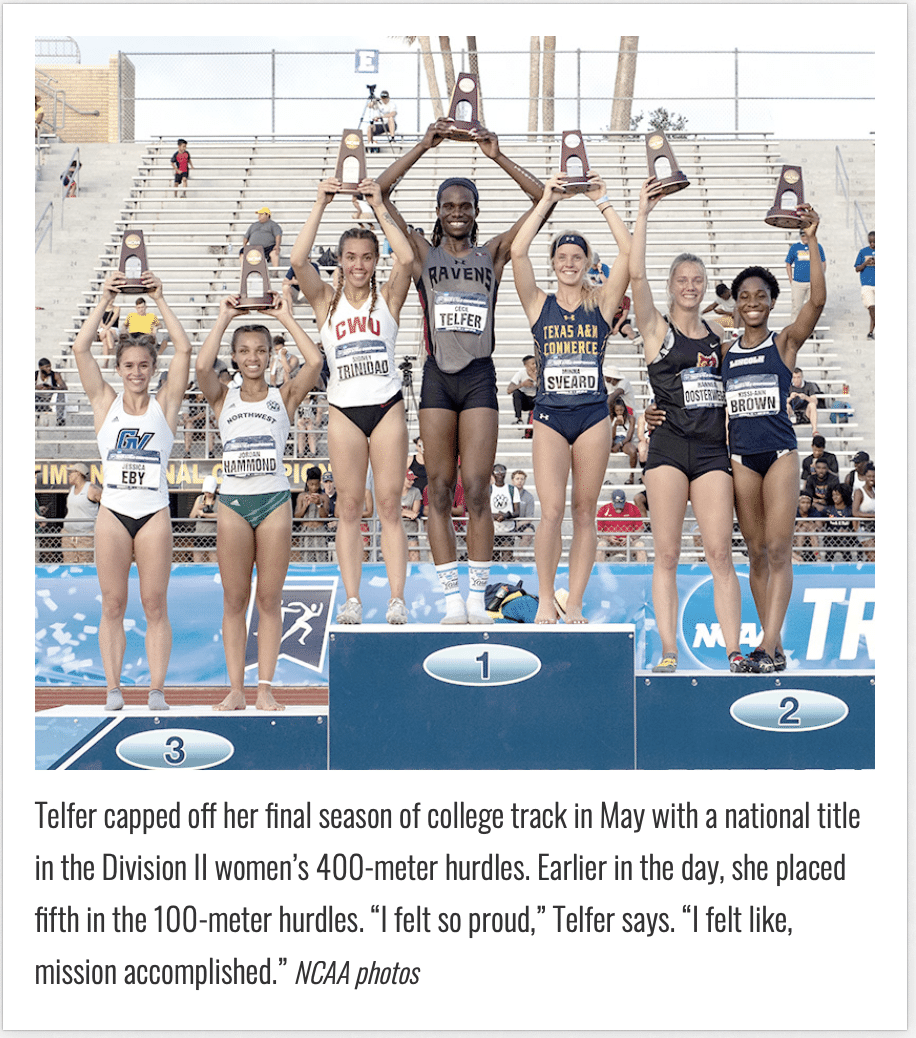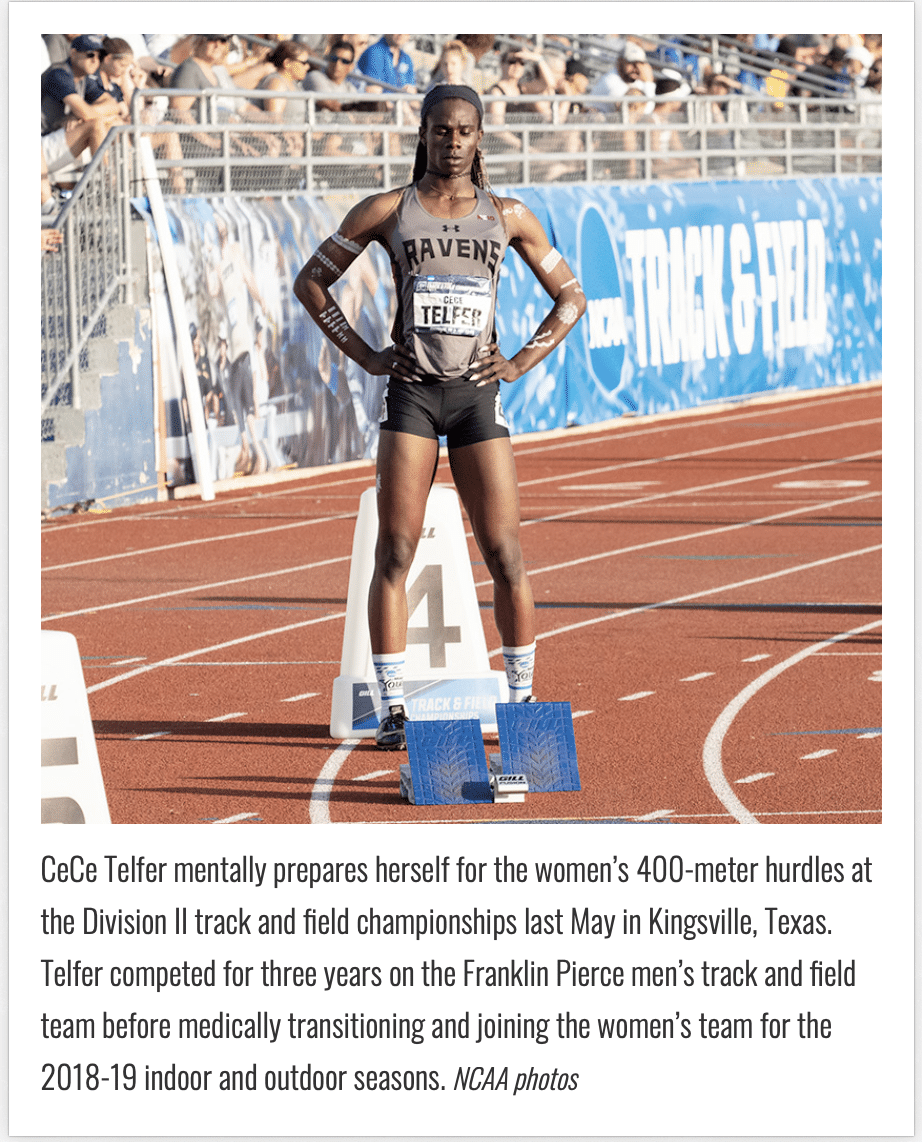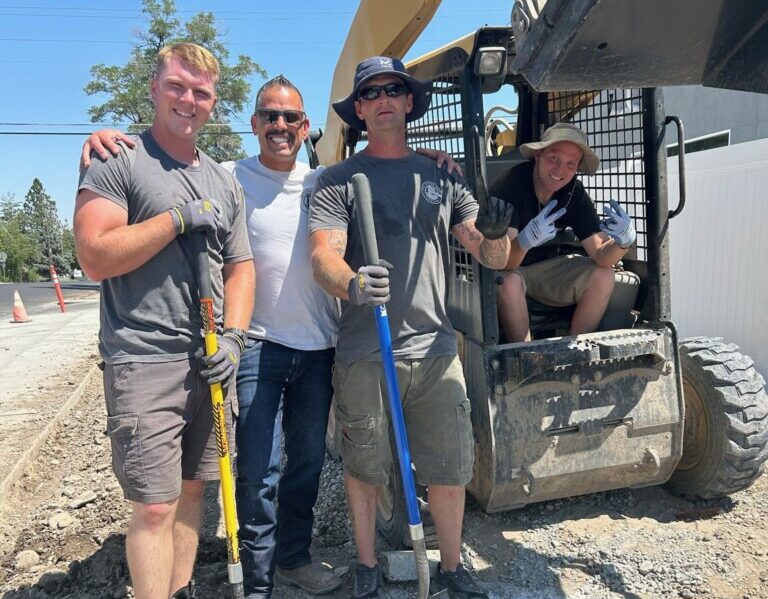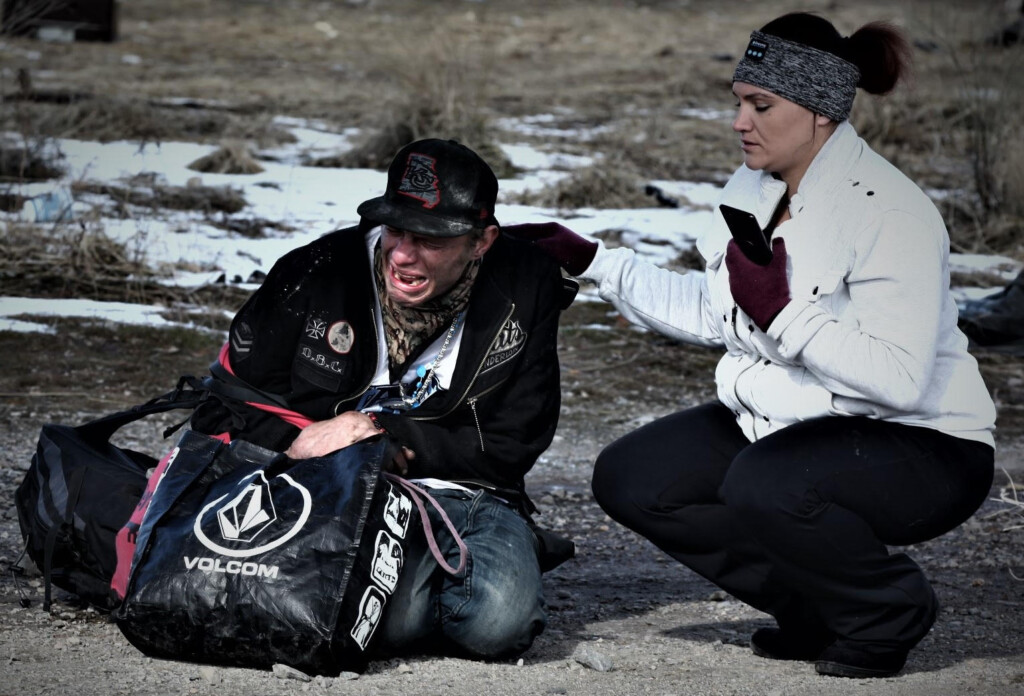This past legislative session Utah joined 20 other states that proposed banning transgender girls (biological boys) from competing in school sports. HB 302, was introduced by Kera Birkeland R-Morgan, who is a women’s athletics advocate. She made it clear in her statement:
“This bill was never about not including others, and I want to make that very clear. This bill is about preserving women’s sports.” She told the Senate Health and Human Services Committee.
The bill in Utah, as well as in other states, is a reaction to the NCAA’s decision to allow trans women (biological males) to compete against women. The NCAA’s website points out “success stories”, one about a track star born in Jamaica, named Craig Telfer who relocated with his single-parent mother to New Hampshire. Craig was a star athlete as a male, but then he decided to transition to become a female and changed his name from Craig to CeCe. As CeCe, she became a champion.


Stories like this are being repeated now all over the country, and records held by biological women, are now being destroyed by transwomen.
HB 302 passed through Utah’s House. More student athletes–biological women, came to show their support and speak in favor of the bill. The Deseret News reported about Haley Tanne, a track athlete at Southern Utah University, who said participating in collegiate sports requires “hills on hills, miles upon miles and countless hours of hard work.”
“It wasn’t until last year that I felt a part of my sport crumbling as I found myself forced to race against a biological male,” Tanne said.“The first time I raced with a biological man, it felt bizarre,” she said, explaining that it felt like she was running against “a giant.”

But HB 302 was stalled in the Senate after Governor Spencer Cox threatened to veto the bill if the language weren’t altered.
There is very strong support in Utah for equality for Homosexuals. Equality Utah, is the PAC (political action committee), that fought very hard against this bill, as well as HB 92, which would have prohibited doctors from transitioning minors.
Equality Utah has gained a lot of victories in Utah for gay rights. The organization is lead today by Executive Director Troy Williams, He characterized Kera Birkland’s bill in the following way in a YouTube video:
“It is a blatant violation of NCAA policies, and if this bill were to pass it would likely bring Utah Universities into conflict with the NCAA. Further, this bill was written in isolation of the transgender community. Equality Utah was not consulted in the drafting of this legislation. This bill violates the spirit of Utah law, which brings stakeholders together. That is not what is happening in this bill. And we know where this bill comes from, it is the product of the Alliance Defending Freedom. They are a vicious anti-LGBTQ organization that has been attacking our community for decades. And they have failed in their attacks against LGBTQ adults, so they have shifted their tactics against LGBTQ children.”
Williams went on to say, “We can celebrate girls sports and also support trans-gender children. It’s not an either-or situation.”
But his characterization of the bill implies that it is an either-or situation: if you are not with him, (in allowing trans girls to compete) then you are anti-trans and anti “inclusion”. These measures have created an environment where legislators, athletes and average Utahns are fearful of speaking up or debating the issues for being labeled an “anti-trans”. This is unfortunate because organizations like Equality Utah are now using primarily the tactic of guilt, and shaming people who simply want to see their young girls, daughters be able to compete with fairness in athletics. Allowing biological males to compete in girls athletics is simply unfair. Why?
For two reasons. According to several studies conducted on transgender youth, many of these young people (greather that 40%), end up reverting back to their biological gender. Gender dysmorphia is a psychological condition, that is no longer treated as such because gay rights activists don’t believe it should be considered a psychological condition, but gender selection should be a preference. The common belief is that anybody should be able to choose their preferred gender including pre-pubescent youth. Secondly, biological males have a huge natural advantage compared to females. Biologically on average males are 10% larger in every area: lung capacity, heart size, brain size, bone density. Males have more lean muscle mass, and overall more muscle mass in general. These are biological facts.
But this issue will continue to be debated by using the shaming tactics that Equality Utah and other gay-rights organizations now revert to. They wish to ignore the scientific studies about trans youth; ignore the psychological literature; ignore the biological facts and call this an issue of “inclusion, and making sports fun for everyone.” Trans athletes should definetelly be able to compete in sports, but the category they compete in should be determined in a very simple manner: if they have an XY chromosome, they are males; XX and they are females.
Utah Stories editorial policy is to never tell our readers what to think, but to always do your own research. Do you think we have this wrong? Please leave a comment below, or send a letter to Richard@UtahStories.com
Subscribe to Utah Stories weekly newsletter and get our stories directly to your inbox






